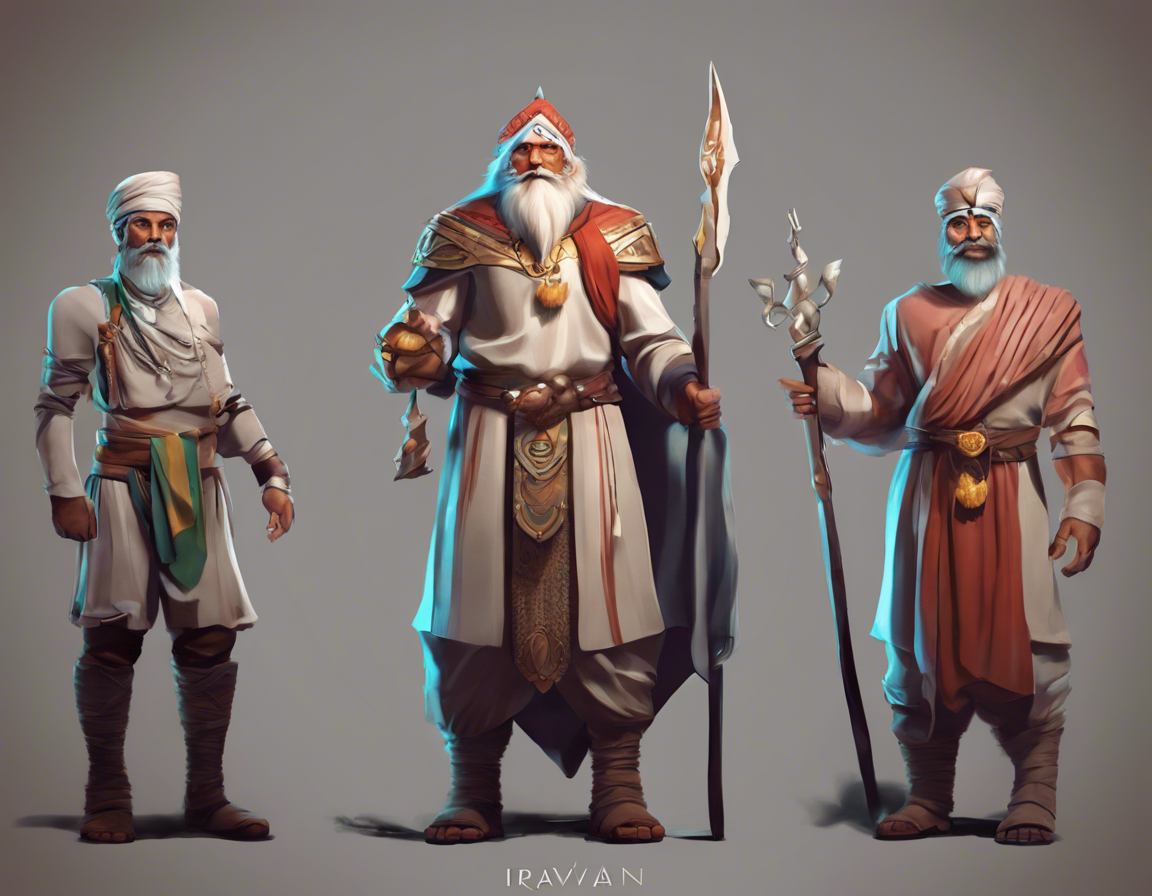The Spiritual Cast of Iraivan: Exploring the Divine Characters


Introduction
Exploring the spiritual cast of Iraivan is akin to delving into a universe brimming with divine characters, each possessing unique attributes and significance. Iraivan, a term in Sanskrit meaning “God within,” represents the divine presence that resides in every being and every aspect of creation. In this article, we will embark on a journey to uncover the mystical personas that form the spiritual cast of Iraivan.
The Supreme Divine – Paramatman
At the pinnacle of the spiritual cast stands the Paramatman, the Supreme Soul or the Ultimate Reality. Paramatman transcends all duality and limitations, embodying the purest essence of consciousness and bliss. It is the source from which all other divine characters emanate, representing the unmanifested aspect of God.
The Creator – Brahma
Next, we encounter Brahma, the creator deity in Hindu cosmology. Brahma symbolizes the creative force that brings forth the manifestation of the universe. With four heads representing the four Vedas and a hand holding the sacred lotus symbolizing purity and creation, Brahma is revered as the architect of existence.
The Preserver – Vishnu
Vishnu, the preserver and sustainer, embodies the principle of cosmic order and righteousness. Often depicted with a discus (representing the wheel of time) and a conch shell (symbolizing the primordial sound of creation), Vishnu is a compassionate deity who incarnates on Earth in various forms to uphold Dharma and restore balance.
The Destroyer – Shiva
Shiva, the destroyer and transformer, represents the ultimate reality of change and dissolution. With his third eye symbolizing wisdom and destruction, and a trident denoting the three gunas (qualities), Shiva is the embodiment of detachment and transcendence. He destroys the ego and paves the way for spiritual growth and regeneration.
The Divine Mother – Devi
Devi, the divine mother goddess, encompasses the feminine aspect of the divine. Also known as Shakti or Parvati, she is worshipped in various forms such as Durga, Kali, and Lakshmi. Devi symbolizes creation, nurturing, and power, embodying the energy that fuels the universe and sustains life.
The Guru – Dakshinamurthy
Dakshinamurthy is the embodiment of the guru, the spiritual teacher who imparts knowledge and wisdom. Depicted as a serene figure in a meditative posture under a banyan tree, Dakshinamurthy symbolizes the removal of ignorance and the illumination of true knowledge. He is revered as the supreme teacher who leads seekers from darkness to light.
The Divine Couple – Radha-Krishna
Radha-Krishna, the divine couple of love and devotion, exemplify the inseparable union between the individual soul (Jivatman) and the Supreme Soul (Paramatman). Their eternal love story symbolizes the union of the devotee with the divine, emphasizing the path of Bhakti (devotion) as a means to attain spiritual realization and liberation.
Conclusion
The spiritual cast of Iraivan encompasses a diverse array of divine characters, each playing a crucial role in the cosmic drama of creation, preservation, and dissolution. By understanding and connecting with these divine personas, one can deepen their spiritual practice and cultivate a deeper sense of connection with the divine essence that permeates all of existence.
FAQs
1. Who is the highest deity in the spiritual cast of Iraivan?
– The highest deity is Paramatman, the Supreme Soul or Ultimate Reality.
2. What is the significance of Brahma in Hindu cosmology?
– Brahma is the creator deity who symbolizes the creative force that brings forth the manifestation of the universe.
3. How does Shiva differ from Vishnu in terms of their roles?
– Shiva is the destroyer and transformer, while Vishnu is the preserver and sustainer in Hindu mythology.
4. Why is Devi worshipped in various forms?
– Devi, the divine mother goddess, is worshipped in various forms to represent different aspects of creation, power, and nurturing.
5. What does Radha-Krishna symbolize in Hindu spirituality?
– Radha-Krishna symbolize the eternal love between the individual soul and the Supreme Soul, emphasizing the path of devotion and spiritual union.
6. Who is Dakshinamurthy and what is his significance?
– Dakshinamurthy is the embodiment of the guru, representing the removal of ignorance and the imparting of true knowledge in Hindu tradition.
- 350
- 0

0 Comments